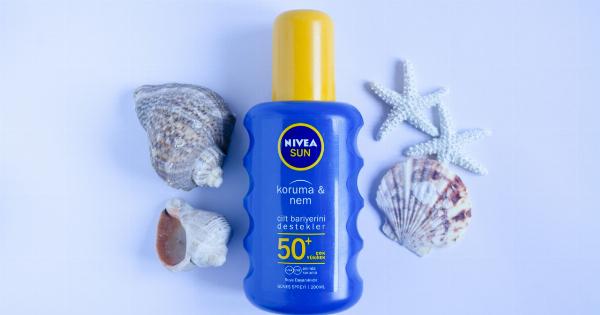Sunscreen is an essential product in our daily skincare routines. It helps protect our skin from the harmful effects of ultraviolet (UV) radiation, such as sunburns, skin aging, and an increased risk of skin cancer.
However, recent studies have raised concerns about certain ingredients commonly found in sunscreens and their potential harm to our health. In this article, we will explore whether your go-to sunscreen could be causing harm to your health.
Understanding UV Radiation
To comprehend the potential harm of sunscreens, it is vital to understand the harmful effects of UV radiation. There are three types of UV rays: UVA, UVB, and UVC. UVC rays are blocked by the Earth’s atmosphere and do not reach our skin.
UVA and UVB rays, on the other hand, are the ones responsible for skin damage.
The Role of Sunscreens
Sunscreens work by either absorbing or reflecting UV radiation. Chemical sunscreens contain ingredients that absorb UV rays, while physical sunscreens contain mineral filters that reflect and scatter the rays.
It is crucial to protect our skin from excessive UV exposure as it can cause DNA damage, oxidative stress, and suppression of the immune system.
Controversial Ingredients in Sunscreens
Some of the controversial ingredients found in sunscreens include oxybenzone, octinoxate, homosalate, and octocrylene. Let’s take a closer look at each of these ingredients:.
Oxybenzone
Oxybenzone is a common ingredient in many sunscreens due to its ability to effectively absorb UVA and UVB rays. However, several studies have suggested that oxybenzone may have harmful effects on both human health and the environment.
It has been found to be a potential endocrine disruptor, interfering with hormone function. Additionally, oxybenzone has been detected in human breast milk, urine, and blood, raising concerns about its potential bioaccumulation in the body.
Octinoxate
Octinoxate is another widely used UV filter in sunscreens. Similar to oxybenzone, it has been found to possess endocrine-disrupting properties.
Studies have demonstrated that octinoxate can mimic estrogen in the body, potentially disrupting the normal hormonal balance. Although the concentrations of octinoxate found in sunscreens are usually low, repeated and prolonged exposure may still raise concerns.
Homosalate
Homosalate is an ingredient often added to sunscreens to enhance their UV-absorbing capabilities. However, it has been found to readily penetrate the skin and can be detected in urine, blood, and breast milk.
Some studies have suggested that homosalate may disrupt estrogen, androgen, and progesterone levels. While more research is needed to fully understand its impact on human health, these initial findings raise concerns.
Octocrylene
Octocrylene is a common ingredient used to stabilize other UV filters in sunscreens. However, it can act as a skin sensitizer, potentially causing skin allergies and irritation.
Although the risk of an allergic reaction varies among individuals, it is essential to be aware of this potential side effect.
Alternatives to Consider
If you have concerns about the potentially harmful effects of certain sunscreen ingredients, there are alternative options you can explore. Look for sunscreens that use natural or mineral-based filters, such as zinc oxide or titanium dioxide.
These physical sunscreens provide effective broad-spectrum protection without the controversial chemical ingredients.
Other Sun-Protective Measures
Sunscreen should not be your sole defense against UV radiation. It is essential to adopt other sun-protective measures to further minimize your exposure.
Seek shade during peak sun hours, wear protective clothing, such as hats and long sleeves, and use sunglasses that offer UV protection. Remember, a multi-faceted approach is key to safeguarding your skin.
The Importance of Refined Research
While studies have raised concerns about certain sunscreen ingredients, it is essential to be cautious when interpreting their results.
Many of these studies have been conducted in laboratories or on animals, and the effects observed may not necessarily translate to real-life scenarios. Additionally, the benefits of sunscreen in preventing sunburns and skin cancer should not be discounted.
Conclusion
Sunscreen undoubtedly plays a crucial role in protecting our skin from the harmful effects of UV radiation.
While concerns have been raised about certain sunscreen ingredients, further research is needed to better understand their potential harm to our health. In the meantime, opting for sunscreens with mineral filters can provide an alternative for those seeking to avoid the controversial chemical ingredients.
Remember, maintaining a balanced approach to sun protection is essential, combining sunscreens with other effective measures, such as seeking shade and wearing protective clothing.































